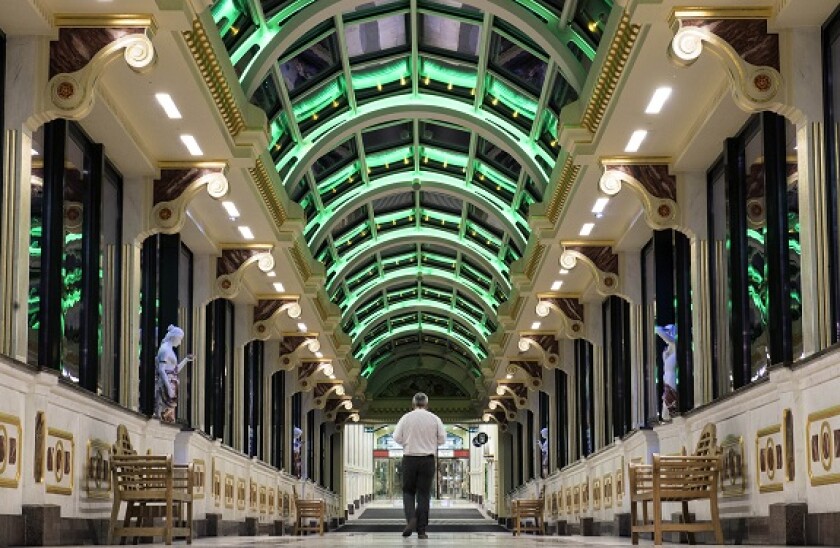But plenty still think the blame game is worth playing. Several of the companies in the direst straits are those whose problems predate the coronavirus, and for whom it has been only the latest in a long line of challenges.
These companies are passing the plate around for government handouts like their better run competitors, but investors and the public sector alike should think twice before indulging firms whose problems run deep.
Two KKR-owned companies offer a good example — Selecta and Telepizza, purveyors of railway station snacks and pizza, respectively.
While footfall has plunged in transport hubs and pizza restaurants have closed their doors, vending machines and food delivery are far from the worst hit sectors on first principles. These are not “zero revenue” companies like the major cruise lines, and nor have they been hit as hard as other transport, leisure, retail and hospitality businesses.
That’s why, at least in the case of Telepizza, the bonds held up reasonably well through the first rounds of crisis sell-off. One shouldn’t overstate the point — investors who bought in primary last year still saw a 30 point markdown at the end of the first quarter — but bondholders might reasonably have felt that a food delivery company, even a highly leveraged one, was a good place to be as the virus lockdowns started to bite.
But both companies, on publishing their latest financials, shocked markets that had been hoping for relative calm, with Telepizza bonds down more than 30 points and Selecta notes — already trading at distressed levels — down a further 24 points.
The numbers for both companies showed that the rot set in before the virus, and the corporate strategies outlined in the last round of investor communications hadn’t been working even before the lockdowns. This translated into post-Covid terms by giving the firms a shorter liquidity lifeline before they ran out of cash — but it was clear, for Selecta, that the dismal Q4 results were as scary as the virus impact.
Intu and Norwegian Air Shuttle offer two better known examples. Both have business models that were brutally poleaxed by the spread of the virus. Renting shopping centres out to UK retailers — when most have been closed for months — is an obvious business risk, while cheap transatlantic flights have all but ground to a halt.
But Norwegian was in such trouble before the virus hit that it had to raise capital twice in the last year alone, each time with earnest promises that there was indeed a turnaround plan and it would happen very soon. Last year was by no means a terrible year for the airline industry generally, but Norwegian was struggling with the consequences of that old cliché, the “debt-fuelled expansion”. Its low cost competitors, EasyJet and Ryanair, had maintained some of the strongest balance sheets in an admittedly weak field of peers, while Norwegian binged on high yield bonds to build its route network.
Intu’s problems had been obvious for years, as high street chain after chain pushed through Company Voluntary Agreements to keep themselves afloat. These are debt restructuring lite, as they cannot bind secured creditors, and so generally resulted in rent reductions. Like most commercial landlords, Intu had a large debt pile, mostly secured on its shopping centres and with a suite of valuation and rent cover covenants in place.
In December, revaluing its shopping centres pushed it into covenant breaches, to be cured only with cash injected from the parent, and Intu had prepped a £1bn-plus rights issue to fund this “turnaround”. This deal hit the market just as the coronavirus did too, and when the valuation round at the end of June hits, Intu looks like it may well breach its debt limits and trip over into a full blown restructuring.
The company couldn’t have easily pivoted to a new, trendier business line but it could have chosen to raise equity when it could, not when it needed to.
Governments have tried to press pause on the collapse of companies exposed to the coronavirus lockdowns, to make sure that viable firms don’t go under thanks to a pandemic and response that nobody predicted. The idea is that the economic structure of society remains dormant until the virus is under control, so that activity can resume quickly when it is safe to do so.
But that runs the risk of allocating taxpayers' money to rescue firms which fumbled the ball at the most convenient moment — when the coronavirus crisis was so deeply under way that their mistakes could be obscured.
Telepizza, as part of its attempt to raise another €100m of liquidity less than a year after KKR took a €130m dividend out of the company, is looking for €20m in Spanish government-guaranteed financing to prop it up.
Sorting the well run companies hit by the coronavirus from the badly run companies finished off by coronavirus isn’t easy for anyone — least of all the governments that needed to rush out emergency schemes in the teeth of a pandemic. But companies should not be able to hide their failings behind a virus face mask.

